Immigration FAQs
When Do Immigrants Benefit A Country? Who Benefits? Why?
1. Immigration Quality And Social Value Questions
1.1. How much immigration is “too much”? How much immigration is best?
Technically, there are no objective guidelines for how much immigration is “excessive”, but the following are good guidelines. Immigration is excessive when:
- When immigrants aren’t assimilating, culturally, linguistically, economically, etc.
- It significantly increases the price of housing.
- It significantly increases the cost of living.
- Massive protests and riots regarding foreign affairs are occurring inside the country.
- It is causing traffic congestion.
- It is comparable to the birth rate, causing overpopulation, or if it contributes to population growth.
- This contribution is measured relative to emigration, and it is sometimes called the migratory increase. The migratory increase equals immigration minus emigration.
- Example: In 2022/2023, about 469k people immigrated to Canada and about 35k people emigrated from Canada. So, for 2022/2023: Migratory increase = Immigration - Emigration = 469k - 35k = 434k.
- This migratory increase of 434k was very excessive. At the time, it was greater than the population of Victoria, British Columbia!
- When most immigrants have net negative social benefits to society.
- When it only benefits businesses and employers, but not the average citizen.
How much immigration should society have?
There are no objective guidelines on this either, but negative growth is okay, because populations can’t increase forever. A society must avoid excessive immigration.
See: “But Humanity Is Nowhere Close To Overpopulation” - Overpopulation FAQs.
1.2. When does immigration benefit the country? Who benefits from immigration?
Technically speaking, immigration always benefits some people. It also always disadvantages some people. The questions that we need to ask are:
- Who benefits from immigration? Why do they benefit?
- Who is harmed by immigration? Why are they harmed?
- Does immigration society benefit as a whole?
- Which types of immigration are best and worse for society as a whole?
Immigration tends to benefit employers and businesses, at least in the short-term. It also tends to harm people who are reliant on businesses, both short-term and long-term.
[NOTE: I haven’t finished writing this section yet. It takes time to write stuff.]
1.3. What Requirements Should Be Set For Granting Citizenship To Immigrants?
Every applicant who wishes to become a citizen must pass the following requirements:
- There must be no predictable risk of overpopulation.
- The applicant must prove that they will provide greater social benefit to the country, than the least qualified citizens who apply for reproduction licenses.
- The applicant must have documents that are sufficient for confirming their identity.
- The applicant must have no criminal record and no arrest warrants from allied countries.
- The applicant must have attained a high school education, at minimum [for adults],
- The applicant must have a stable work history that demonstrates that they have skills that will help them thrive in the country’s economy [for adults].
- The applicant must pass a test showing that they understand all the laws of the country, as well as the historical background and values of the nation (for cultural unity and assimilation).
- The applicant must agree to fulfill all the responsibilities of becoming a citizen (taxes, drafting, jury duty?, etc).
- The applicant must be clear of any contagious diseases.
- If they traveled through any other country before arriving here, then they should have been there legally.
The country reserves the right to reject immigration/citizenship applications for any reason.
What if a foreigner can’t meet these requirements?
Then they are forbidden from entering the country, but there should be no controversy on this. Immigration is supposed to benefit the native population, not the foreign population.
2. Economics And Immigration Questions
2.1. Why does immigration depress wages?
Immigration increases the supply of labor in the economy, which lowers wages across the economy. Businesses benefit from lower wages because that means they can pay workers less money for doing the same work.
Illegal immigration also increases the demand for goods and services, which benefits businesses. So the benefits of illegal immigration to businesses are two-fold.
When the demand for goods and services increases, prices increase too, which hurts consumers. So the downsides of illegal immigration to consumers are two-fold. Consumers have to deal with higher prices and lower wages.
That is exactly what’s going on in Canada and Australia. That’s why it’s so hard to live in those countries right now. Massive foreign immigration is hurting the average citizen, while benefiting the business lobbyists. Why else would those governments put their citizens through such hardships? – Because it benefits the businesses.
2.2. Does immigration increase the demand for goods and services?
Yes. However, immigrants still don’t create as many jobs as they take.
Immigrants often send remittances back to their home countries, instead of spending their extra money within their host countries. They thus increase the supply of labor, but they usually increase the demand for labor by the same amount. Immigrants who send remittance money overseas are also more likely to work overtime, compared to natives, which further depresses wages.
Even when immigrants don’t increase the demand of their countries as much as they increase the supply, they are still increasing the demand of the host countries nonetheless. Businesses inside the host country thus make more money from the increased demand, compared to if the immigrants never immigrated in the first place.
2.3. Isn’t more immigration always good for the economy?
If this is true, then poorer economies are obviously in much greater need of an economic boost. Hence, it would make more sense for people who don’t like living in Western countries (e.g. leftists) to migrate to third-world countries, rather than having third-worlders migrate to the West.
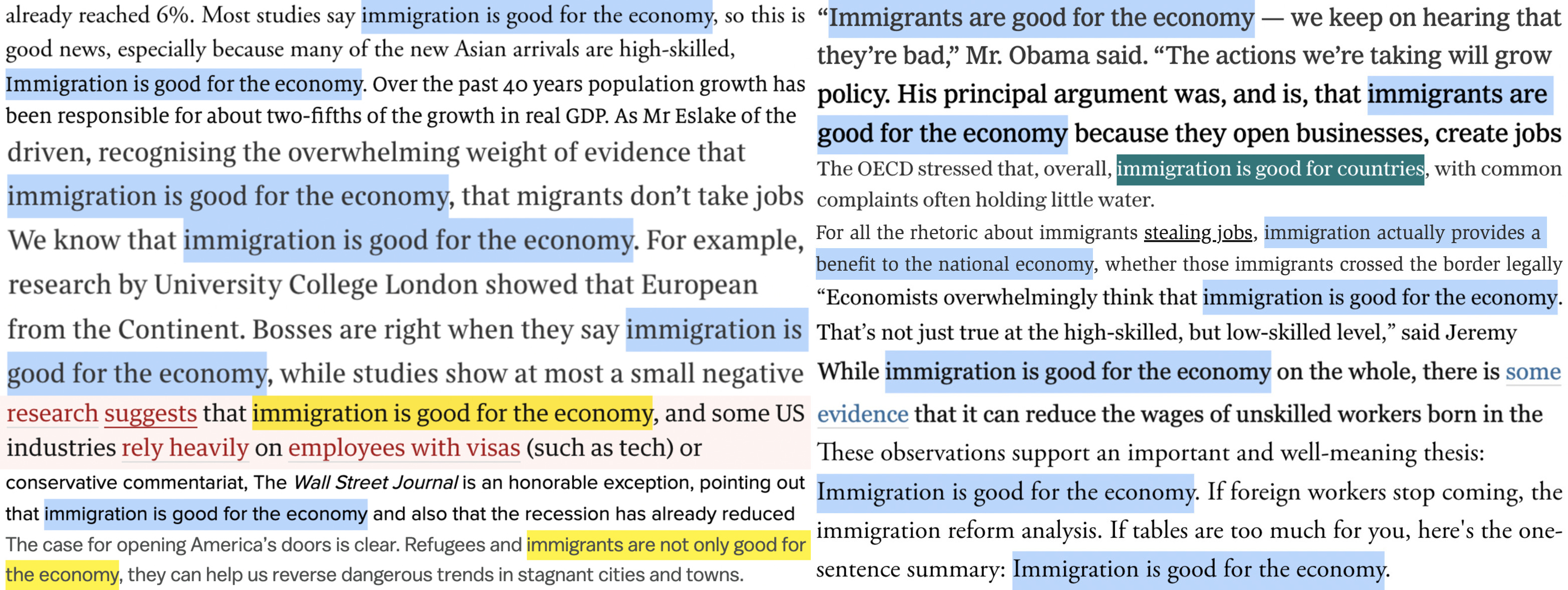
Read More: The fundamental problem for immigration activists – Noah Carl.
Reducing immigration isn’t a silver bullet.
- This implies that mass immigration is a problem.
- Leftists still aren’t reducing immigration. They’re increasing it.

Read More:
- The Marginal Immigrant - Anglo Tremilia.
- Increasing skilled immigration is a mistake - Arctotherium.
- Fleeing Opportunity - Arctotherium.
- National IQ is the Best Predictor of Economic Growth.
- Five Myths About Immigration And Economic Growth.
- Was I wrong about low-skilled immigration?: A response to critics - Aporia Magazine.
- Is “immigration” good for the economy? - Aporia Magazine.
2.4. Won’t immigration be necessary to sustain the populations of developed countries?
- Immigration increases the supply of labor, which decreases wages, thus decreasing fertility even further.
- Immigrants also age. Why is Canada bringing in 100k parents and grandparents over the next 3 years?
- It’s not possible or sustainable for populations grow forever. Infinite growth is impossible for anything. Everything has to stop growing eventually, so the better solution is to fix the economy and culture, not to import more immigrants.
- There are plenty of policies that we could implement to increase Western fertility rates.
- People also say that we need to reduce climate change and carbon emissions. However, importing immigrants from developing countries would actually increase carbon emissions, not reduce them. If it’s important to reduce carbon emissions, then it makes more sense to reduce immigration from developing countries, not increase it.
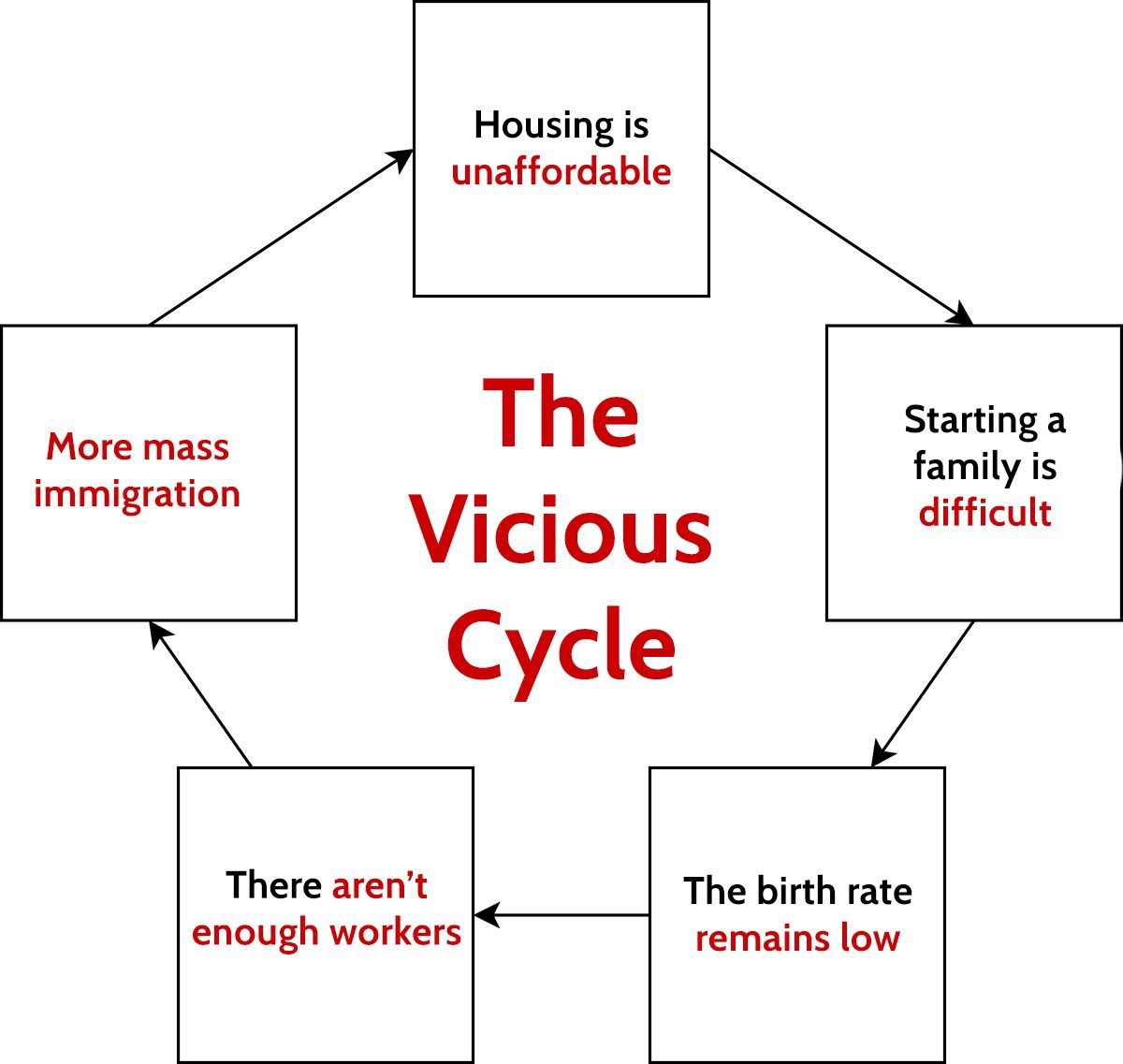
Read More: Immigration does not solve population decline – Arctotherium.
2.5. Who will pick the crops or do menial blue-collar work without immigration?
Native Citizens will. Yes, this is a good thing.
But deporting illegal immigrants aliens would increase the price of food.
That’s true, but illegal immigrants still receive lots of welfare, medical treatments, and other government services for free. It’s still better to not pay for them effectively through our taxes or through some other means, like through money printing, inflation, or something like that. There is no free lunch. Illegal immigrants are not a free lunch.
The left also doesn’t want illegal immigrants to remain as a permanent underclass. They don’t want them to occupy this lowest rung on the economic ladder forever, harvesting crops forever, and have their children harvest crops, and so on and so forth. They usually want these people to integrate into our society and become at least economically equal to us. If that’s the case, then wouldn’t they no longer want to harvest crops? It’s not a sustainable system.
– Paraphrased from: Blithering Genius, “The Case Against Mass Immigration”
So, it’s obvious that leftists wouldn’t want (most) immigrants to do low-skilled labor forever. This implies that low-skilled labor markets are actually a post hoc justification for why they want to import immigrants and avoid deporting illegal immigrants. I suggest that the real reason why leftists want to import low-skilled immigrants is simply because they are motivated by humanism and altruism. Neither the ideology nor its values have any rational justification.
Also, illegal aliens and immigrants need to eat too. Reducing immigration would partially reduce the demand for food, so it’s okay if it marginally reduces the supply of food.
2.6. Who will satisfy the demand for STEM and tech related careers?
Native Citizens will, and that is a good thing.
[NOTE: I haven’t finished writing this section yet. It takes time to write stuff.]



Also see:
2.7. Why can’t we use Georgism to increase the supply of housing instead?
Georgism would indeed encourage landlords to build more housing. Georgism would reduce the cost of living, while raising the economic prosperity of the society. However, this means that implementing Georgism in a country would raise the incentive for immigrants to migrate to the country. It would increase the “pull” factors for immigration.
Thus, Georgism should be implemented after enforcing a stricter immigration code, in order to avoid degrading the genome faster. Unfortunately, NRT will probably be easier to get into the Overton Window before EPC, even though we’d be better off with enforcing EPC (and immigration control) first.
Limiting immigration and switching to Georgism are both important. But there are clear reasons why fixing immigration first should be a higher priority. It seems that some Georgists just want to abuse Georgism to allow infinity immigrants into Western countries.
Housing is a supply problem, not a demand problem.
It’s also a demand problem. It takes a while to increase supply (of housing, etc), whereas demand can be reduced immediately and significantly, by simply deporting socially negative immigrants.
2.8. How does outsourcing compare to immigration?
[NOTE: I haven’t finished writing this section yet. It takes time to write stuff.]
3. Addressing Objections To Reducing Immigration
3.1. But we are a country of immigrants.
No, we are a country of Americans, Canadians, Australians, British, etc. This is about putting the people who already live here first. Because that’s what a good country does.
Second, this argument ignores that most of the immigrants to the New World were historically from European countries. It was thus easier for the European immigrants to assimilate into New World countries like the United States. A similar outcome is not necessarily likely for immigrants from other countries.
Third, most immigrants to the New World were historically legal immigrants, not illegal immigrants, as is the case in the modern United States.
[NOTE: I haven’t finished writing this section yet. It takes time to write stuff.]
3.2. But economic immigrants and refugees deserve the opportunity to seek a better life.
This relies on a Fallacy of Composition, which assumes that being able to help others implies that we can collectively help the entire world. A good country is supposed to put its citizens first. Its citizens deserve a better life more than the potential immigrants do.
Read More:
- What if leftist arguments on immigration were taken to their logical conclusion?
- Shouldn’t we help everybody?
- What is morality?
If the United States had to admit every single person in the world who would enter the United States if their had the means to get there, then they would have to admit a population that is larger than that of the entire United States. This is obviously unfeasible since it would completely disrupt the political stability, over-breach the country’s carrying capacity, and untold undesirable consequences.
Issues arise when immigrants seize power. See also Somali fraud, migrant takeovers of trucking industries, etc. The reason that lower int people see them as a threat more quickly, is because they have been dealing with the effects of them more immediately. Many white collar European peoples, for example, did not at first have to deal with the issues presented with these changes. They may even mistakenly believe them to be progress. But the lower class people understood the nature of the migrant arrivals immediately.
3.3. Who would migrate to developed countries, if they could?
[NOTE: I haven’t finished writing this section yet. It takes time to write stuff.]
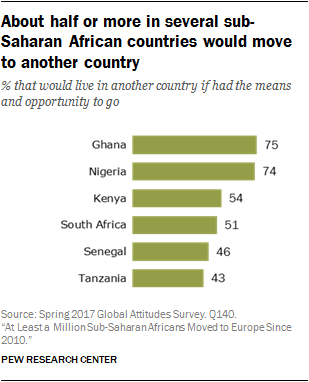
During the period of 1965 - 2021, an estimated 440,000 people per year emigrated from Africa; a total number of 17 million migrants within Africa was estimated for 2005.[1] The figure of 0.44 million African emigrants per year (corresponding to about 0.05% of the continent’s total population) pales in comparison to the annual population growth of about 2.6%, indicating that only about 2% of Africa’s population growth is compensated for by emigration.[2] – Wikipedia, “Emigration from Africa”
“The number of German recipients of welfare benefits has halved since 2010, while the number of foreign nationals receiving social assistance payments has doubled, government data has revealed.” “The data emerged from a response by Parliamentary State Secretary at the Federal Ministry of Labor and Social Affairs Anette Kramme to a request made by the Alternative for Germany (AfD) MP René Springer.” “It revealed that the number of German recipients of the citizens’ allowance had almost halved from 5.2 million in 2020 to 2.9 million as of February 2023. In contrast, foreign recipients of social benefits had doubled from 1.3 million people in 2010 to 2.6 million currently.”
– Immigrants Cost Germany 15.4 Billon Euros In Welfare Per Year.
This argument also doesn’t consider how although immigrants may be more willing to do jobs that native people don’t want to do, a lot of their costs are externalized onto the country’s locals, particularly if they receive welfare benefits, and they don’t pay enough taxes to make up for what they get back.
- https://en.wikipedia.org/wiki/Illegal_immigration_to_the_United_States
- https://en.wikipedia.org/wiki/Undocumented_immigrant_population_of_the_United_States
- https://immigration.procon.org/demographics-of-immigrants-in-the-united-states-illegally/
Nick Shirley was not lying in his video alleging wide scale fraud by Somali immigrants. I’ve written my commentary comparing his video against the MSM here: https://en.wikipedia.org/wiki/Talk:2020s_Minnesota_fraud_scandals/Archive_1#Lede.
3.4. Doesn’t diversity always benefit society?
See:
- What are the effects of ethnic diversity on social stability?
- What are the effects of ethnic diversity on culture?
- Why does valuing diversity imply valuing discrimination?
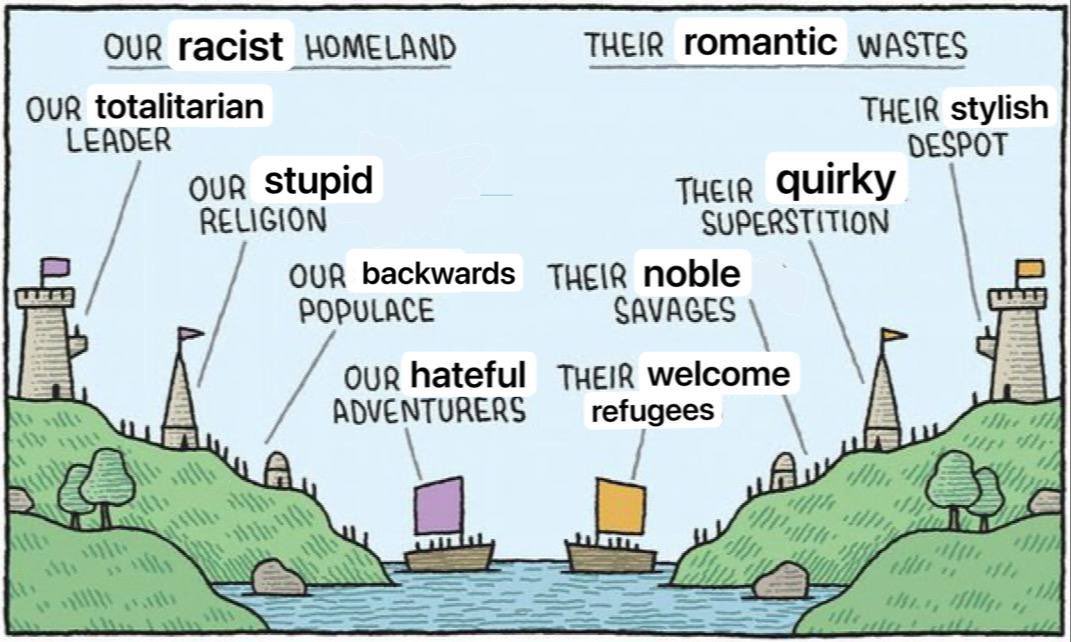
It’s problematic that deportations conflict with humanist ideology. Most people would probably be more supportive of deportations if they understood biological realism and how immigration mainly benefits corporations by lowering wages and increasing the cost of living. Although most people are humanists these days, everyone is also selfish. People would thus be less supportive of humanism if they understood that humanism is contrary to their self-interests.
3.5. How can immigration be abused as a political weapon?
[NOTE: I haven’t finished writing this section yet. It takes time to write stuff.]
Twitter thread on example countries that are using immigration as a weapon against disloyal regions in their claimed territory: https://x.com/whyvert/status/1744079823314526358.
Settler colonialism is trending. Some current examples:
- China. Settled loyal Han in disloyal Xinjiang (from 90s). Settled 1m loyal mainlanders in disloyal Hong Kong. There’s also a road across Xinjiang’s Taklamakan desert China built to entice settlers.
- Indonesia. Settled about 300k loyal Javanese in West Papua. Many around the giant Grasberg gold and copper mine, which had been a target of attacks by Papuan independence activists. The West Papuans are not pleased.
- Morocco. Sent settlers to Western Sahara, which it has occupied since 1975. One source says Moroccans are now a majority of the half-million or so population. Image If Russia conquers Ukraine, or China conquers Taiwan, we can be sure that they will try to settle loyalists in their new territories.
- Bangladesh. After defeating an insurgency (1970s-90s) by the local ethnic group in the Chittagong Hills, Bangladesh settled loyal Bengalis in the area.
- Sri Lanka. During the civil war (1983-2009), the Sri Lanka government settled Sinhalese in Tamil areas as a loyal bulwark.
- Iraq. In the 1960s to 2003, Iraq had a policy of Arabization of Kurdish areas. It burned Kurdish villages, deported the people, and settled Arabs, especially around the oil fields. See: Wikipedia: Ba’athist Arabization campaigns in northern Iraq.
- Mexico. Legal and illegal immigration from Mexico to the United States, as well as the higher fertility of Mexicans and Hispanics in the US, are all supported by the Mexican political elites.
- How China supercharged ‘birth tourism’ and scammed American citizenship for up to 1.5 million babies – New York Post.
Two conclusions:
- In recent times, the vast majority of settler colonialism has been in the non-Western world.
- But it gets little attention because it is “brown-on-brown”. If whites aren’t involved, it’s invisible.
Related: Foreign Texans are keeping the state red, not making it blue.
3.6. Won’t worldwide immigration be inevitable?
No, worldwide immigration is not inevitable when governments use sufficient force to prevent immigration. Immigration isn’t economically necessary, especially for developed countries.
3.7. Contradictions In Leftist Ideology
- If Mexico is so great, then why do these La Raza radical Mexican supremacists stay in the US and fear deportation?
- If it’s all about the money, then why are there all these costs imposed on legal citizens whether directly through welfare or prison, or indirectly through higher housing prices and lower wages?
- If it’s all about climate change, how is moving a person that produces fewer carbon emissions into a country where they will inevitably produce more carbon help?
- If it’s about social security, then why don’t they pay into it?
- If it’s about jobs, then how come citizens struggle to get hired?
- If it’s not about white genocide, then how come I keep seeing them celebrate white demographics declining?
- If it’s about some culture thing, is it really impossible for a legal citizen to open up a taco shop?
- Borders are imaginary, but white people stole sacred land from natives.
- White people are still colonizers in the US 300 years later, but a black man in Ireland is just as Irish.
- Diversity is our strength, but Africa got ruined by making different ethnic groups live together in one territory.
4. Race And Immigration Questions
4.1. Wouldn’t this immigration policy favor some races over others?
This immigration policy wouldn’t explicitly favor some races over others because we advocate that all potential immigrants meet the same criteria for immigration status. It is inevitable that these criteria will implicitly favor some races over others, but that’s not necessarily a bad thing. There are racial differences in average IQ and many other characteristics.
Also, if we need about 3 immigrants per pensioner to balance out the ageing population problem, then what do we do when all our the current immigrants retire? Bring in more?
If the pension system depends on infinite growth, then it’s flawed and unsustainable. Kicking the can down the road while at the same time enabling harmful immigration practices doesn’t help anyone. A better solution would be to fix the pension/retirement system, increase the birth rate, and use limited and targeted immigration to fill the gaps of certain industries. It’s very difficult to engineer a society which fills the gaps everywhere. Have some immigration is not necessarily bad. Having immigration the increases the cost of living, depresses wages and the birth rate is.
4.2. Should races with unfavorable political views be allowed to immigrate?
Many race idealists and realists alike have said that Western countries should limit or avoid Asian immigration since Asians have more left-wing and collectivist political views and social attitudes, even though East Asians tend to have higher IQs than Europeans. These normative views have been expressed by Arctotherium, Alden Whitfield of Heretical Insights, and Amy Wax.
While this is true and is probably the main disadvantage to Asian immigration, it’s not necessary or practical to cut off all Asian immigration. Surely, it’s feasible to only permit high-IQ, right-leaning Asians to immigrate to the West. That would make it possible to gain the best of both worlds. We shouldn’t prevent high-quality immigrants from entering the country, just because the rest of the people in their race are relatively lower quality.
It will require doing deeper screening and more thorough vetting of potential immigrants. As an example, Israel’s airport is among the safest and most secure in the world, and it also screens potential flight customers and their backgrounds very invasively. Anybody who applies for citizenship could be required to report all their social media accounts and other details that could be used to determine their political views. Similar tactics can and should be done for all immigration applicants of all races. Political views are also roughly 30-40% heritable, so genetic screening could help decide which immigrants to allow into a country.
4.3. Why would more immigration increase the dysgenics of Western societies?
4.4. Isn’t The Great Replacement Of White People Just A Myth?
5. Mass Deportation Questions
5.1. Why does the United States need to deport illegal immigrants?
Why shouldn’t the United States deport illegal immigrants? Why support illegal immigration, when we can support legal immigration instead? If you don’t want to deport illegal aliens, or even want to legalize them, then you de facto support illegal immigration continuing to be the main type of immigration.
How do we know that illegal immigrants are going to assimilate, not commit more crimes, etc? And why shouldn’t we deport them if current immigration is excessive, and the West is at risk of overpopulation?
The statistics in this article are fabricated, cherry-picked garbage. Foreign immigration may benefit businesses and people with power, but current immigration to western countries is excessive. It certainly doesn’t benefit the average citizen.
Just look at Canada or Australia. Both countries currently have record high numbers of foreign immigration, and you’d be hard-pressed to find a typical middle class Canadian who would honestly vouch that they’ve been better off in the past few years than before.
“No one is illegal on Stolen Land”
If no one is illegal, then land cannot be stolen.
Longer Explanation: This mantra could also be phrased as: “If land was stolen, then no one is illegal on it.” Either way, it makes no sense. If land was stolen, then the people who are on it are on it illegally. But it’s no illegal for Americans to inhabit the United States, so the phrase is incoherent.
If you’re denying the legitimacy of a sovereign state (and its right to define borders or laws), then you can’t simultaneously appeal to legal definitions like “theft” or “illegality”.
But immigrants commit fewer crimes than native-born Americans.
Statistics are often cited for that claim, but they tend to make the error of not examining crime rates by race. We know that some races commit more crimes than other (Blacks and American Indians), so that’s a major reason why native-born crime are higher than the crime rates of immigrants.
When trying to make an honest judgment on whether immigrants commit more crimes than the native-born population, it thus makes sense to divide crime rates by race. Most immigrants to the United States are usually Latin American, Middle Eastern, or Asian (South, Southeast, East, or Pacific Islander). The immigrant crime is higher than the native-born white crime rates. Hispanic crime also tends to get worse in the second generations.
Related Book Review: Open Borders: The Case Against – Heterodox Thinking.
5.2. But mass deportation is not feasible.
[NOTE: I haven’t finished writing this section yet. It takes time to write stuff.]

5.3. Can legal immigration harm countries too?
Action against illegal immigration is a positive development, especially for the United States. However, it also distracts from how legal immigration is the biggest problem in most Western countries.
5.4. What is the best deportation strategy?
5.4.1. The Trump Administration On Deportations
Trump’s command of ICE wins a lot of support from his base. However, most of his support base is too ignorant to realize that it’s just theater for winning their support. Trump’s refusal to mandate more effective methods like E-Verify shows that he doesn’t truly want to expel most illegal aliens from the US. The ICE operations are mainly theater designed to make it look like some progress is happening, and to deter would-be irregular arrivals.
Trump’s 2025 ICE deportations are better than nothing. But at the current rate, they aren’t deporting illegals fast enough for all of them to be deported by the time Trump’s second term ends.
5.4.2. E-Verify’s Recent Ineffectiveness

Figure 8: Map of the United States e-verify, CC BY-SA 4.0, by Ikonact.
As of 2026, there are currently 10 states which mandate employers to use E-Verify before hiring all new employees. There are over two million illegals who reside in those ten states. Many of those two million are probably either: able to work for their employer under faulty E-Verify measures, working under the table, not old enough to work, unemployed and reliant on welfare, or unemployed criminals.
When looking closely at a population map of each of the US states, there doesn’t seem to be a strong correlation between whether a state mandates E-Verify and how many illegal aliens reside in the state. The main factor which affects the number of illegal aliens in each state is the state’s total population size. Most of the Mandatory E-Verify states tend to be red states. However, red states may have somewhat fewer illegals simply because Republicans are more hostile to illegals than Democrats, not necessarily because of E-Verify.
 |
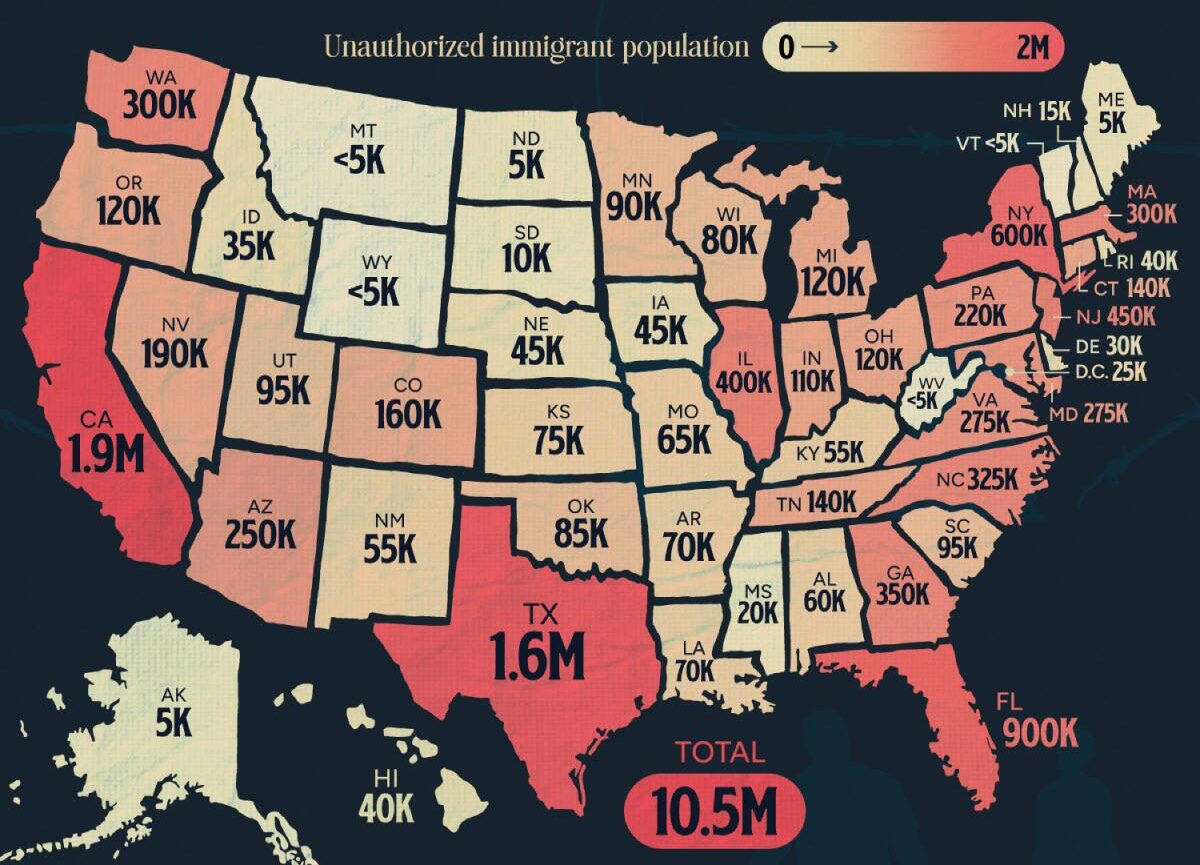 |
Figure 9: Population by U.S. state, CC BY-SA 4.0, by Abbasi786786.
There were an estimated 10 million illegals in the US at the start of Trump’s term. Those ten states (a fifth of US states) contain about a fifth of the US population, and over 2 million illegals. This contradicts the idea that E-Verify is effective for disincentivizing illegal immigration, at least within recent times. My rudimentary analysis is consistent with the Cato Institute’s 2019 analysis.
5.4.3. E-Verify Needs Major Reform
E-Verify used to be effective in the early 2000s, but it became corrupt during Bush and Obama’s terms. The Republican business lobby was so powerful that E-Verify eventually ceased to stay effective. The people didn’t notice, so they did nothing.
Reforming E-Verify to restore to its early 2000s efficiency would do a lot to deport illegal aliens, even if E-Verify isn’t mandated nationwide. There are 2 million illegal aliens who live inside the 10 states where E-Verify is mandatory for all employers. If E-Verify was reformed and restored, then it would be really easy to deport most of those 2 million illegals.
Clearly, E-Verify would need major reform from its current state in order to return to its prior effectiveness. Since E-Verify was effective once, it can probably become effective again, if and once the corruption and flawed methodology is resolved.
Additionally, illegal aliens who are dependent on welfare could be caught similarly to E-Verify. For example, medicaid data could be sent to ICE. https://redstate.com/terichristoph/2025/12/30/federal-court-rules-ice-can-use-medicaid-data-to-target-illegals-for-deportation-n2197597
6. Glossary
This glossary defines some terms that will come up in these frequently asked questions:
- Immigration
- Immigration is the international movement of people to a destination country of which they are not usual residents or where they do not possess nationality in order to settle as permanent residents. From Wikipedia.
- Push & Pull Immigration
- See: Human Migration: Push and Pull.
- Malthusianism
- The theory that potentially exponential population growth can surpass the linear growth of an environment’s carrying capacity (including its food supply and other resources), which eventually causes members of the population to die off until settling back down to the carrying capacity.
- Neo-Malthusianism
- The theory and concern that overpopulation (and overconsumption) may increase resource depletion and/or environmental degradation and lead to ecological collapse or other hazards. Neo-Malthusianism is often coupled with advocacy of human population planning to ensure sufficient resources for current and future human populations as well as for other species.
- Cornucopianism
- The theory that overpopulation, overconsumption, and environmental problems faced by society either do not exist or can be solved by technology and/or the free market.
- Overpopulation
- An excessive number of occupants (people, animals, plants, etc.) in a particular area; specifically, when the number of occupants exceeds the ability of that area to provide for them.
- War, Disease, and Famine
- The main traditional ways how overpopulation have historically been solved in human societies. The vast majority of deaths throughout human history can be attributed to War, Disease, and Famine.
- Birth Control
- The main force of population control in Modernity. Birth Control is responsible for causing countries all over the world to have below replacement fertility rates, temporarily in the grand scheme of things.
- Population Control
- The practice of preventing the size of a population from growing past the carrying capacity, in the interest of avoiding an Overpopulation Crisis. For humans specifically, population control must be done by either artificially via Birth Control (and immigration restrictions), or naturally via War, Disease, and Famine.
- Eugenic Population Control (EPC)
- Population Control via mandatory Birth Control and (Laissez-Faire) Eugenics via Reproduction Licenses.
- Overpopulation Crisis
- When the carrying capacity is so high above the carrying capacity, that War, Disease, and Famine start to occur.
- Race
- A statistical cluster of genetic variation, which is characterized by phenotypic similarities and shared ancestry“. Races typically refer to humans, and are akin to subspecies. Racial categories tend to have predictive and explanatory power, barring exceptions.
- Statistical Cluster
- A grouping of a set of objects in such a way that objects in the same group (called a cluster) are more similar (in some sense) to each other than to those in other groups (clusters). For more info, see: Wikipedia: Cluster Analysis.
- Ethnicity / Ethnic Group
- A grouping of people who identify with each other on the basis of shared attributes that distinguish them from other groups. Those attributes can include common sets of traditions, ancestry, language, history, society, culture, nation, religion, or social treatment within their residing area.